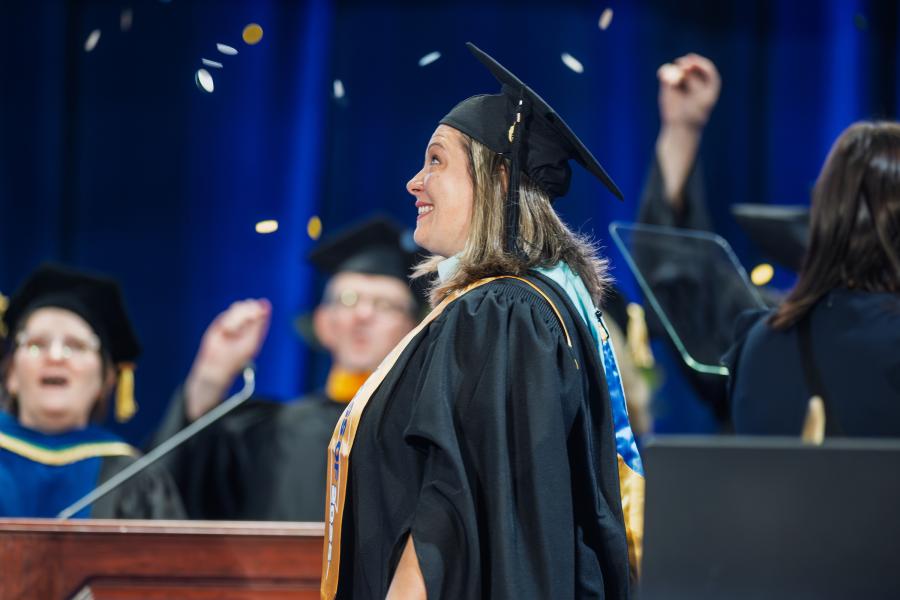Learn about the 2026 Global Health Immersion in Geneva, Switzerland program. This is a unique opportunity to spend two weeks in May in beautiful Switzerland exploring health priorities, policies and practices from a global perspective while soaking up new cultural experiences. Particularly relevant for students in public health, nursing, medicine, podiatry, nutrition, allied health, pre-health (medicine, dentistry), environmental sciences, biological sciences, anthropology, international development, and international relations.

In the Architectural Exploration program, high school students study and build for two weeks at a summer camp at Kent State's College of Architecture and Environmental Design. The program's design thinking curriculum is designed to inspire and prepare the next generation of emerging designers for the endless possibilities presented in the architectural field. A compilation representing their efforts during their time in this year's program is a collection of work titled "Transformations of the Primitive Hut." The students' designs are on display in...

Career Exploration and Development is excited to announce two new resources designed to support career readiness across the curriculum and co-curriculum!Updated & Renewed: 21 Career Academy Modules in Canvas CommonsAfter the success of our initial launch in Fall 2024, we’ve refreshed and relaunched 21 standalone Career Academy modules in the Canvas Commons. These modules are now easier than ever to integrate into your own courses or programs.You can search for these modules in Canvas Commons using the keyword: “Career Academy.”New: Self-Enrolled Canvas Course: Career Ac...

Culture & Career Exploration in Florence, Italy
Program Contact Information

Lisa O’Connell has been part of the planning and execution of commencement and convocation ceremonies and other events at Kent State University since she joined Kent State in 2012 as a coordinator in the Office of University Ceremonies (now University Events and Protocol). She currently serves as the director of University Events and Protocol, a position she has held since 2017. O’Connell was “invited to her own party” on Aug. 11 with a student’s-eye view of the university’s commencement ceremonies as she walked across the stage to receive her Master of Science in Hospitality ...

The Kent State University alumni family grew by more than 1,000 new graduates from its eight-campus system across Ohio as the university held its summer commencement ceremony. The accomplishments of the Summer Class of 2025 were recognized with a commencement ceremony at 10 a.m. on Aug. 9. In total, 1,032 degrees were conferred this summer, consisting of 130 associate degrees, 527 bachelor’s degrees, 320 master’s degrees, 52 doctoral degrees and three educational specialist degrees....

For Giovanni Tripi, choosing Kent State University was the first step on a path that would take him from Northeast Ohio to the heart of Italy—and deep into the worlds of biology, anthropology and hands-on scientific discovery. A biology major on the pre-medicine track from Lyndhurst, Ohio, Tripi has made the most of his time at Kent State.“What makes this experience so exciting for me is how flexible and enriching the program is,” Tripi shared. “I’ve been able to dive deep into areas I’m passionate about — from infectious diseases and genetics to forensic anthropology and public health — ...
